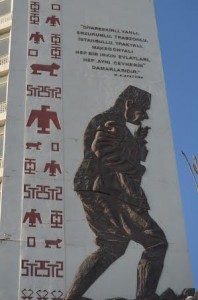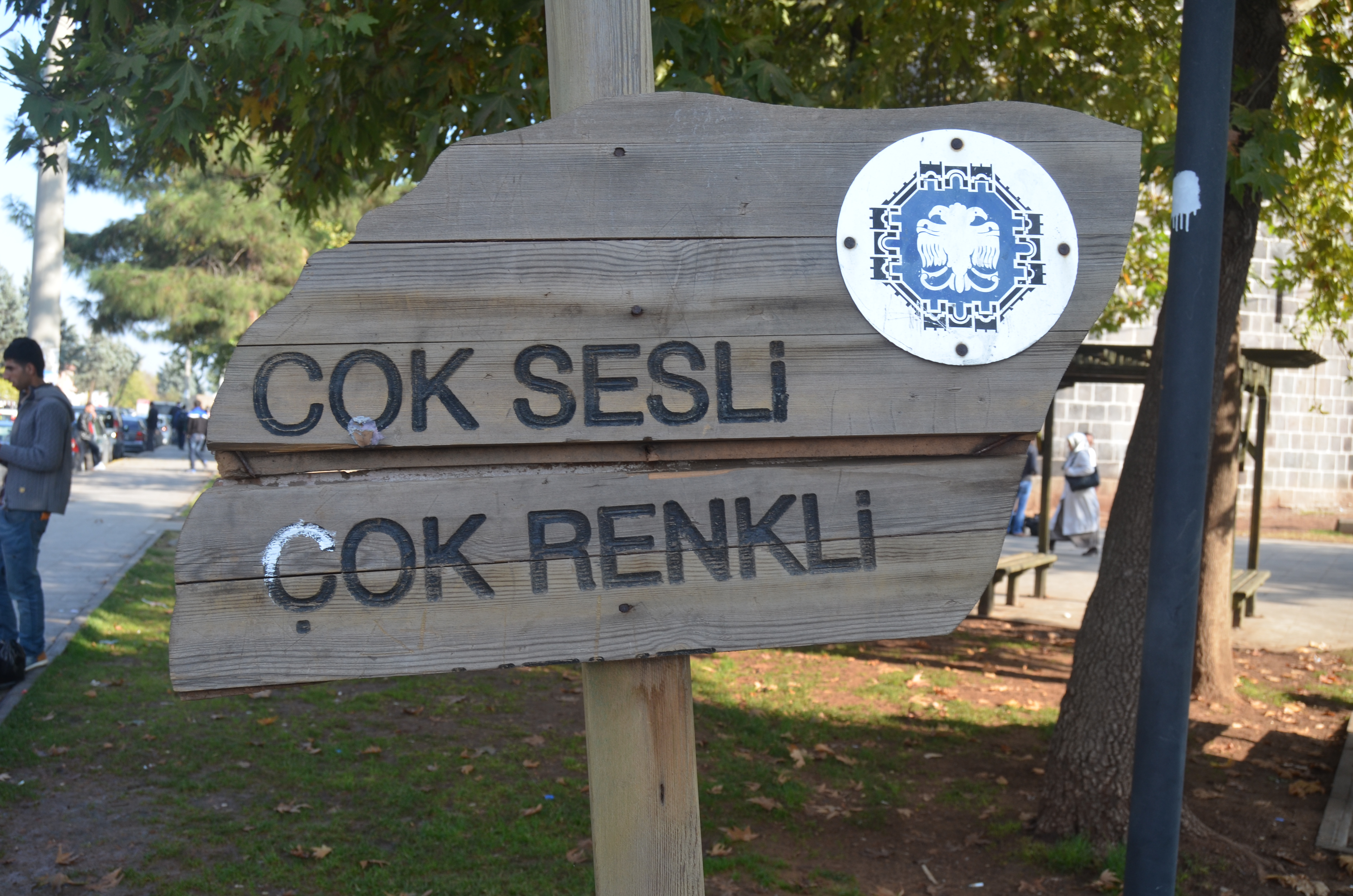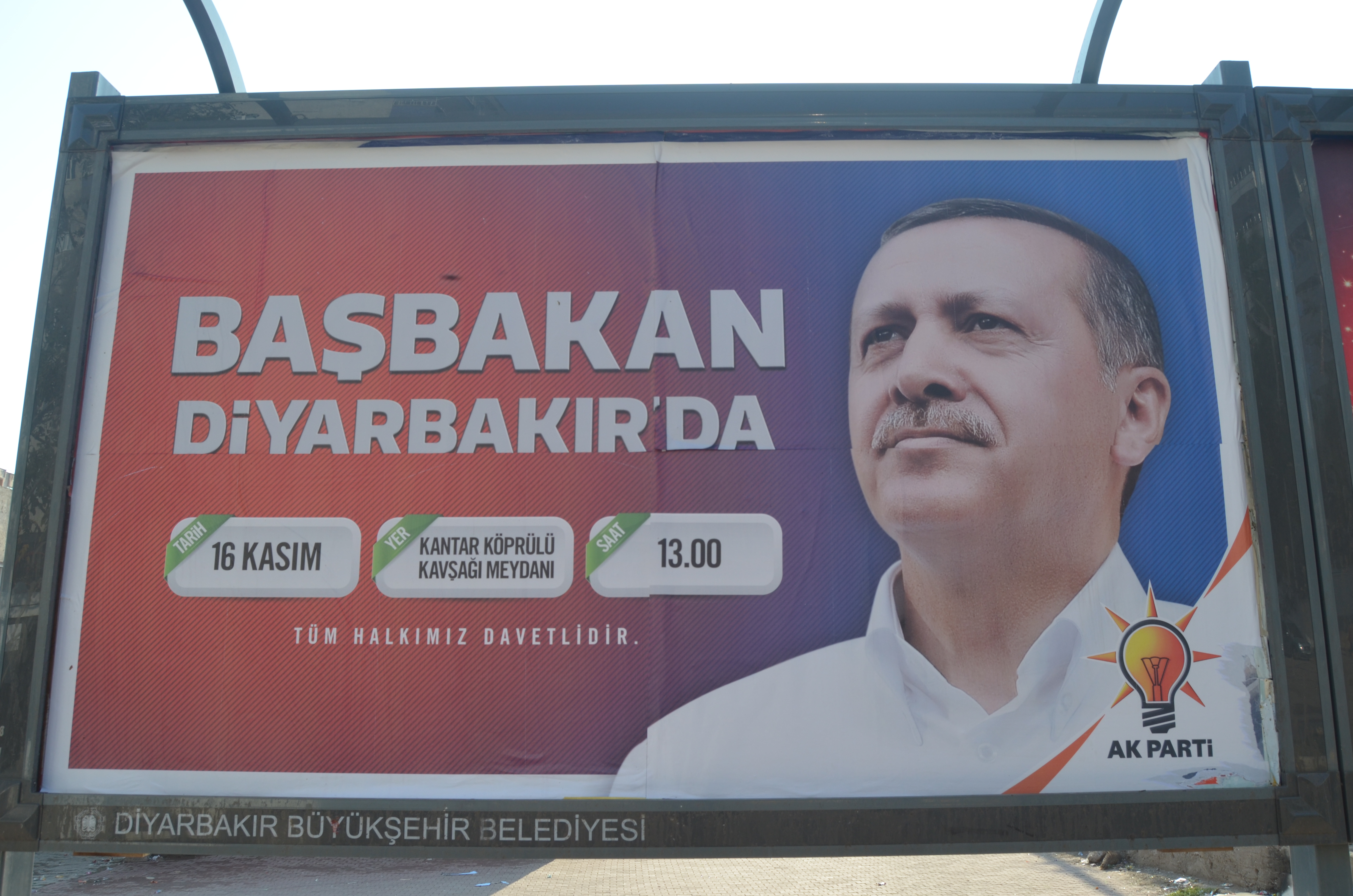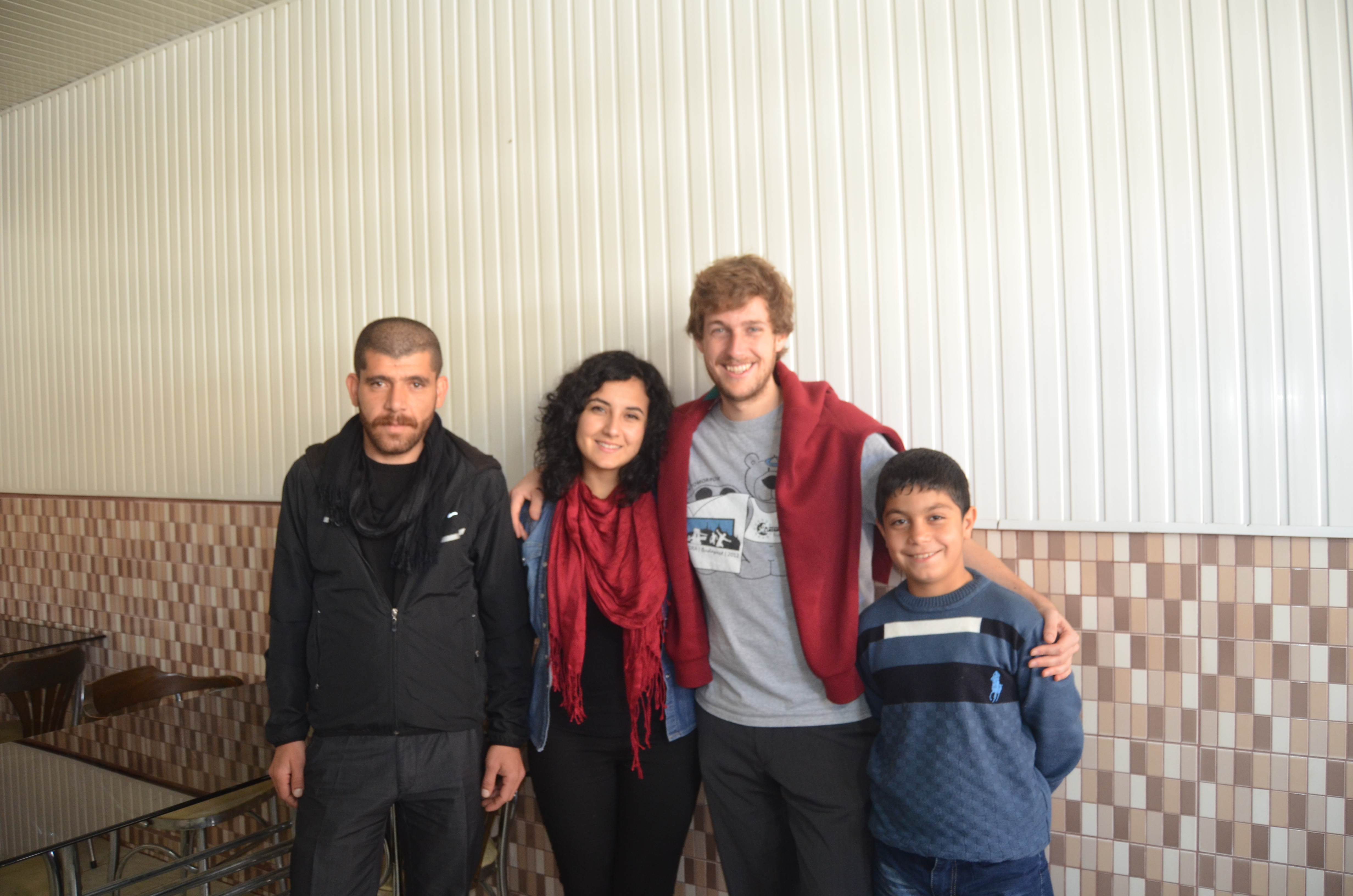On Europe’s borders, human rights violations are happening on a daily basis. People are beaten, jailed, tortured and killed for mostly political reasons. But what do Western media share about it? … exactly. So if you want any information, you have to look for it yourself. Here’s a short report from two AEGEE members who went to see it with their own eyes.
When you’re in the south-eastern Turkish city of Diyarbakır these days, several times a day you will hear thundering in the air, every day. Military airplanes are crossing the territory, between Antep and Van, Erzurum and Şırnak, patrolling the skies and reminding those on the ground of who the boss is. The boss is the Turkish government in Ankara, because the territory in question is part of the Republic of Turkey. That’s pretty simple.
Or is it?

Walking around in Diyarbakır, it is impossible to miss one particular sight. At the great square just outside the impressive ancient city walls, there is a tall white building with a large bronze figure attached to the wall, next to which a slogan is written: „Diyarbekirli, Vanlı, Erzurumlu, İstanbullu, Trabzonlu, Trakyalı ve Makedonyalı hep bir ırkın evlâtları, hep aynı cevherin damarlarıdır.“ All those that live on Turkish territory are of the same (Turkish) blood. That’s what Atatürk said once, in 1932, and after all that Atatürk did for the Turkish nation, there can be no doubt that he must have been right.
Depending on your source, the numbers may vary, but there are around 15 to 18 million people living in Turkey that call themselves Kurds, not Turks, even if their passports are Turkish. In comparison to the overall population of currently around 80 million, that makes it about 20% of all Turkish citizens. Not something you can neglect, least of all if you are the government of Turkey. And in fact, the Turkish government has been paying a lot of attention to its Kurdish citizens in recent decades. Just that this has not really been the kind of attention that the Kurds were looking for.
One of the main things Kurdish people in Turkey have been looking for ever since the foundation of the Republic is something they call their natural right: to be educated in their own language. Kurdish language is very different from Turkish, even if centuries of coexistence have created a large pool of common vocabulary. Kurdish children who go to school have to study in Turkish even if they have never heard this language in their lives, and this gives them a great disadvantage. At the same time, if Kurdish children cannot learn their mother tongue properly, only very few of them will actually produce cultural goods like music and literature. Consequently, Kurdish culture is suffering a very fragile (and barely legal) existence.
However, the Turkish government, and indeed the majority of Turkish citizens, have little understanding for such demands. Their position is that if the country is to function, it needs one language that everyone is proficient in, and this language is Turkish, because it is the native language of the great majority of citizens in the country. Well, that latter point is of course undeniable. And Turkish law says that Turkish is the only official language of the country. But does that mean that Kurdish language should be prohibited completely? Is it necessary that someone like Abdullah Demirbaş, the mayor of a Diyarbakır district where over 90% of the people speak Kurdish in their daily life, is removed from office and jailed for two years because he published a tourist brochure in Kurdish language? These are only some questions to start with.
What makes the language question delicate is related to one evil word that has haunted every Turkish government since the foundation of the Republic: Separation! What would happen if the Kurdish provinces just declared independence one day, similar to Kosovo or South Sudan? That would be a disaster beyond imagination for Turkey. And just the idea of such a disaster causes the public discourse in Turkey to be rather irrational, even hysterical. The dogma is that giving any more liberty to the Kurdish people will inevitably lead to a stronger awareness of their own identity, and consequently to separation. It doesn’t only seem useless to argue against this logic; it is even outright dangerous, as many journalists had to discover when they ended up in jail for exactly that reason.
It is hard to tell whether the Turkish government is just a prisoner of public opinion in Turkey (because of course they want to be re-elected), or if this public opinion coincides with their own personal views. However, there can be no doubt about what the Turkish government is actually doing in the provinces with Kurdish majority population. And these things are terrifying. Yet, as it seems, most of my Turkish friends seem not to know what’s going on in their own country. This is why I hope that many of them will read the following few examples with close attention.
Diyarbakır, 12 November 2013. Me and Gizem are sitting in a court room. Three Kurdish politicians are on trial. It is alleged that they are supporters of the so-called Group of Communities in Kurdistan (KCK), which is said not to be a terrorist organisation in itself, but affiliated with the Workers Party of Kurdistan (PKK) that is considered a terrorist organisation not only by Turkey, but also by the EU and the US. So the charge is not that they are terrorists, nor that they are members of a terrorist organisation, but members of an NGO kind of thing that is in a way related to a terrorist organisation. They haven’t done anything. For this crime, they have been two years in jail already, a situation called „pre-trial detention“. Now, finally having their trial, evidence against them comes from wiretaps (intercepted phone calls) that are actually not only illegal, but, according to the defending lawyer, also obviously fake. Not that it matters what the lawyer is saying, though, for as she speaks, the judge is playing with his iPhone. Apparently the judgement is already written.
Van, 14 November 2013. We are speaking with Selim, our Kurdish driver, who owns a small company and has been an activist for Kurdish rights all his life. Thousands (!) of Kurdish politicians, activists and journalists have been jailed only since 2009, he says. Many of them never heard the official reason why. But of course they know why: Because they worked for Kurdish interests. They tried to open language schools, they published books in Kurdish, they helped Kurdish refugees from Syria, and, worst of all, they did research about the countless human rights violations by the Turkish military, police and bureaucracy. There are things that the Turkish public should not know, and investigating in such things will cost you your freedom. But losing your freedom is one thing, he says, and being in prison is another. During the approximately 20 times he was jailed (and never convicted!) for one of the reasons above, he was tortured so hard that he still wonders why he is alive at all.
Lice, 15 November 2013. More than 20 people surround our table in a bakery in this small provincial town, most of them are young men, not much older than I am. But their stories cause me to grow grey hair within minutes. During the 90’s, Lice was largely destroyed by the Turkish army, burnt like other thousands of villages in the area to cut off the supply chains and hiding places from the PKK militia. During the last 29 years of guerilla war, more than 40,000 people have died, most of them civilians. Many of the people in this room have lost family members this way. Not that the PKK is unguilty, they say. But the methods of the military were brutal. Kurdish lives didn’t count, and still don’t. Only this summer a young man was shot by soldiers in Lice when he peacefully protested against the extension of the military camp on the edge of the city. And in the very bakery where we are talking, two people were shot some years ago. – Only a few minutes later, we suddenly hear shouting from outside the bakery, „panzer, panzer!“ it goes. The army is getting interested in our meeting. But they only come and check, nothing more. We are lucky this time…
What impresses me most during these days is that most Kurdish people actually don’t seem to have hard feelings towards their Turkish „brothers“, as the government officially calls these two groups. Of course there are a number of radicalists who don’t believe in peaceful solutions and want a separate Kurdistan at any cost. But despite all the repression, most Kurds apparently could imagine living together in Turkey. The only thing they demand is their rights: language rights, local self-government, and, first and most of all, the end of these daily human rights infringements.
And I wonder: Do they ask for too much?
P.S. My great gratitude is with Gizem Karslı who did not only make our research trip possible, but who is investing an admirable amount of energy in promoting equal rights for all Turkish citizens.
Written by Thomas Leszke, AEGEE-Köln




